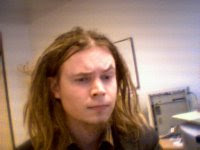In the 1970 paper Wang's Paradox Dummett takes on the task of defending intuitionistic anti-realism of his kind from the counter-argument that meaning-theoretic considerations (of the sort he adduces) should lead one to adopt rather the stance of "strict finitism". In contrast to Dummett's anti-realistic intuitionism, in strict finitism we demand that the meaning of mathematical language be explained in terms of our actual abilities. Dummett for example happily accepts that (n)(n is a prime \/ n is not a prime), since we may, "if we so choose", for any given n go through every m < sqrt(n) and check whether it divides n. We are, in Dummettian terminology, in possession of an effective method of deciding whether a given natural is a prime or not. Of course, this is a theoretical ability -- in reality, if given a sufficiently large natural I'm not at all capable of deciding its primality. Thus we may say that Dummettian anti-realism is a theoretical sort of anti-realism, explaining the meaning of mathematical language not in terms of our actual practice and abilities but rather in terms of a theoretical and idealised account, a conceptual picture, of that practice and those abilities. The question, then, is how, on the Dummettian account of meaning, we can learn to understand statements the meaning of which hinges on such a theoretical account? Shouldn't we rather take seriously the idea that meaning is grounded in our practice and abilities, investigating the real limitations of these abilities?
In Wang's paradox Dummett writes
But, even if no one were disposed to accept arguments in favour of the strict finitist position, it would remain of greatest interest , not least for the question whether constructivism, as traditionally understood, is tenable position. It can so only if, despite surface similarity, there is a disanalogy between the arguments which the strict finitist uses against the constructivist and those which constructivist uses against the platonist. If strict finitism were to prove internally coherent, then either such disanalogy exists or the argument for traditional constructivism is unsound, even in absence of any parallel incoherence in the constructivist position.Dummett then goes on to consider what is involved in the strict finitist account of the naturals -- this is by far the most interesting part of the paper -- and finally concludes that strict finitism is incoherent, on basis of an argument ("Wang's paradox") to the effect that reasoning about vague predicates in general is literally inconsistent or incoherent.
Let's set aside the question of whether Dummett's argument is convincing (it is not). The curious thing is that after presenting this conclusion Dummett seems content. However, the argument against Dummettian anti-realist intuitionism is not addressed at all! That is, it might well be that strict finitism is incoherent. It doesn't at all follow that Dummettian anti-realist intuitinism is coherent -- for the counter-argument, arguing that strict finitism rather than anti-realist intuitionism in fact follows on meaning theoretic grounds might well be valid even if strict finitism is incoherent.
Now, Dummett does not formulate the argument against anti-realist intuitionism quite as I did in the above. Rather, as he sees things, it is the analogue of his argument against "the Platonist". (At that time Dummett apparently took it for granted that the only reason someone would hold that the law of excluded middle is true for mathematical statements is belief in "Platonism", existence of mathematical objects in some sense analogous to existence of physical objects.) Still, it remains baffling that while he notes that in order for anti-realist intuitionism to be coherent there must be some disanalogy he does not in fact locate any such disanalogy, seemingly happy to merely establish the incoherence of strict finitism to his satisfaction. It is of course possible that the purpose of the paper was merely to report some philosophical arguments against vague predicates, some seemingly unpalatable observations about phenomenal properties and observational preciates, and so on. Still, one would have expected at least some comment on the seemingly pressing question of the validity of the meaning-theoretic argument for anti-realist intuitionism...

If any kind of close to human AI is to become realized, it can simulate logical human reasoning, then it will be done on a physical computer with finite bounded resources, not an idealized Turing Machine. Consider a sequence of numbers such as might be generated by Pi or some number with Pi-like properties: "Interestingly, it is mathematically proven that there can be no computer program which can eventually find (synonym: learn) these (algorithmic) rules for all sequences which have such rules!" John Case, COLT page. (How is it known that there exists such a sequence which then can't be found?) In particular, I had the property of distinguishing signal with meaning encrypted signal (pattern) from random noise.
ReplyDeleteThis connects to Fitch's Paradox of Knowability, which is largely assumed to discredit the anti-realism position.
"The paradox of knowability is a logical result suggesting that, necessarily, if all truths are knowable in principle then all truths are in fact known."
And of course what is known in principle from an ideal theory (infinite or finitely unbounded) and a finite physical theory, have an infinite number of differences.